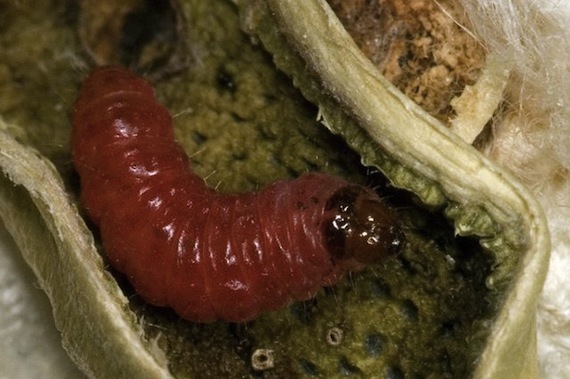By Alison Hewitt, UCLA Newsroom
Evolutionary biologists have news for anyone accustomed to thinking of evolution as a long-term proposition: Evolution also takes place on a day-to-day basis, and it's a tool we must use to keep drug-resistant diseases from spiraling out of control and to prevent mass extinctions.
In a paper published Sept. 11, UCLA evolutionary biologist Thomas Smith and colleagues from seven other universities explain that pests and diseases are evolving too quickly, while people and endangered species are evolving too slowly. The article, which appears in the online version of the journal Science, calls for policy makers and industry leaders to use the principles of applied evolutionary biology to solve global challenges in agriculture, medicine, conservation and other fields.
The paper had its roots in a 2007 conference at UCLA that was organized in part by Smith, who is director of the UCLA Center for Tropical Research, a member of UCLA's Institute of the Environment and Sustainability and a professor of ecology and evolutionary biology.
"We can either choose to manage evolutionary processes or not, but evolutionary change will proceed regardless," Smith said, pointing to the recent rises of antibiotic-resistant diseases, pesticide-resistant insects and climate change-driven extinctions.
The study was the first collaboration among evolutionary biologists from diverse fields exploring how to apply evolutionary biology across disciplines.
"The principles are the same, whether we're talking about medicine, agriculture or biodiversity," he said.
The paper calls for coordination across disciplines to create best practices that can control the effects of man-made evolution. Among the recommendations: addressing antibiotic resistance by using combination drugs, slowing the adaptation of agricultural pests by planting pesticide-free crops next to traditional crops to keep the non-resistant gene-pool flowing, and preventing the extinction of animal species due to climate change by enabling interbreeding -- for example, by relocating snow leopards better adapted to warmth to live with those better suited to cooler climes.
Evolutionary medicine is an emerging field, Smith noted, and doctors already are creating drug cocktails that attack pathogens in different ways to prevent diseases from becoming immune to treatment. UCLA is home to one of the first academic minors in evolutionary medicine.
"If you use the same drug over and over again to try to kill off a pathogen, you will likely select for a drug-resistant strain," Smith said. "If you use a combination of drugs that attack many different features of the pathogen, it's much harder for the pathogen to withstand the attack. This is because it's harder to evolve resistance to 12 things simultaneously than just one."
In agriculture, a farmer can slow plants' pesticide-resistance by setting aside a "refuge" field of crops specifically for pests to feast on. By allowing a small patch of bugs to thrive pesticide-free, the farmer creates competition for any insects that become resistant to the pesticide one field over, making it more likely that the mutation will be bred out.
The extinction of animal species happens more slowly, but the paper warns that we should be using evolutionary principles to protect valued animals, whether they live in the remotest parts of the wild or our urban backyards, Smith said.
"Large construction projects have environmental impact statements, but we also need to consider evolutionary impacts," Smith said. "There are enormous impacts from building a shopping mall or a freeway."
As an example, Smith pointed to the way in which wildlife has evolved on either side of the 101 Freeway in Southern California. "The populations of animals on the north and south sides of the freeway are genetically distinct because that freeway has been there so long."
People are hesitant to think humans can or should control evolution, but with antibiotics, pesticides and even freeways, the decision has already been made, Smith explained.
"Evolutionary change is happening around us all the time," he said. "We have to decide whether we want to be part of it. Our inaction is having huge and detrimental impacts to biodiversity and medical progress. We need to use our knowledge to drive things in our favor."
The paper's lead authors were Scott Carroll of UC Davis and Peter Søgaard Jørgensen of the University of Copenhagen.
Photography courtesy of Alex Yelich/University of Arizona. Planting pesticide-free cotton as a refuge for the pert pink bollworm caterpillar has slowed bollworms in neighboring cotton fields from developing resistance to pesticides because they breed with the pesticide-free population.

